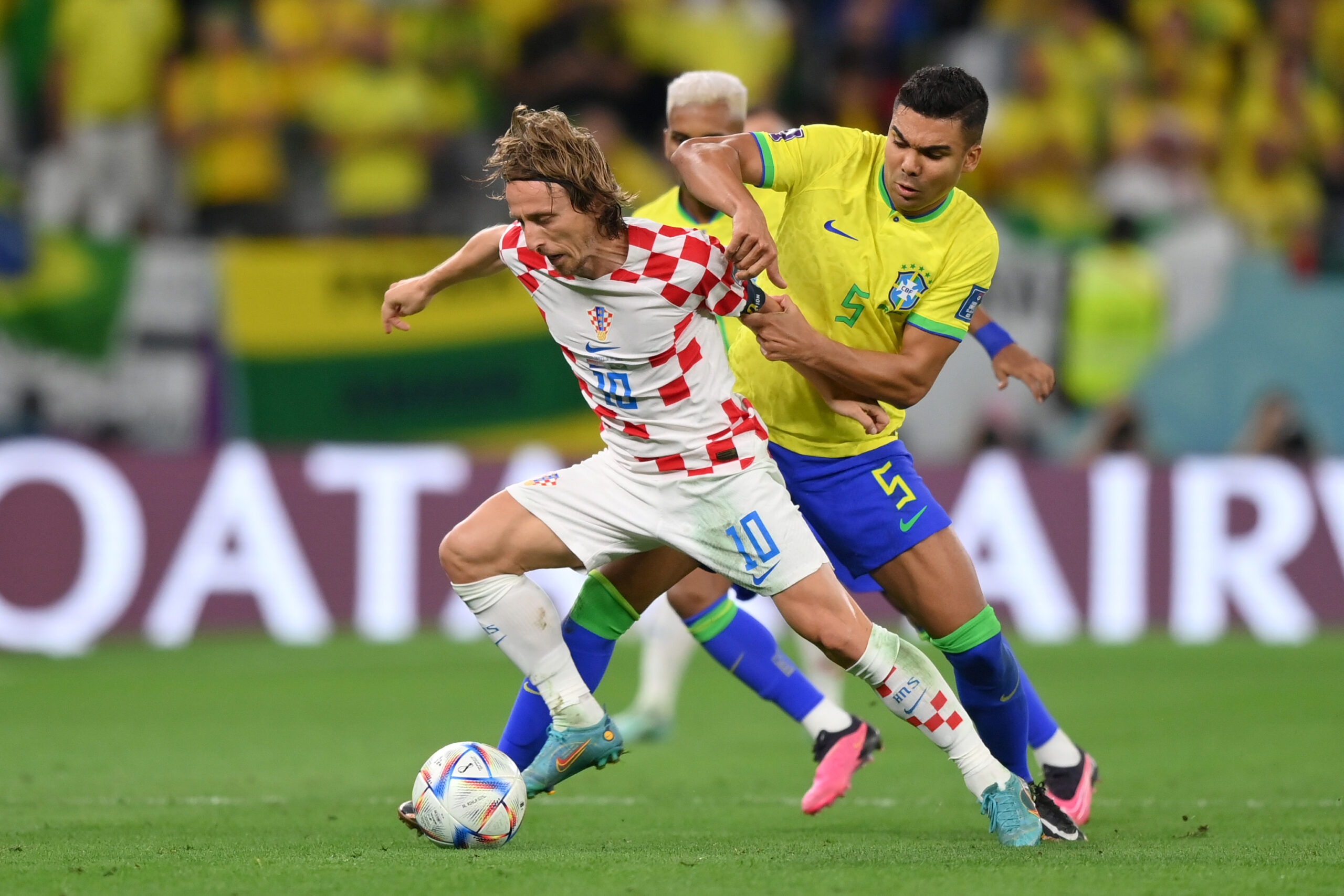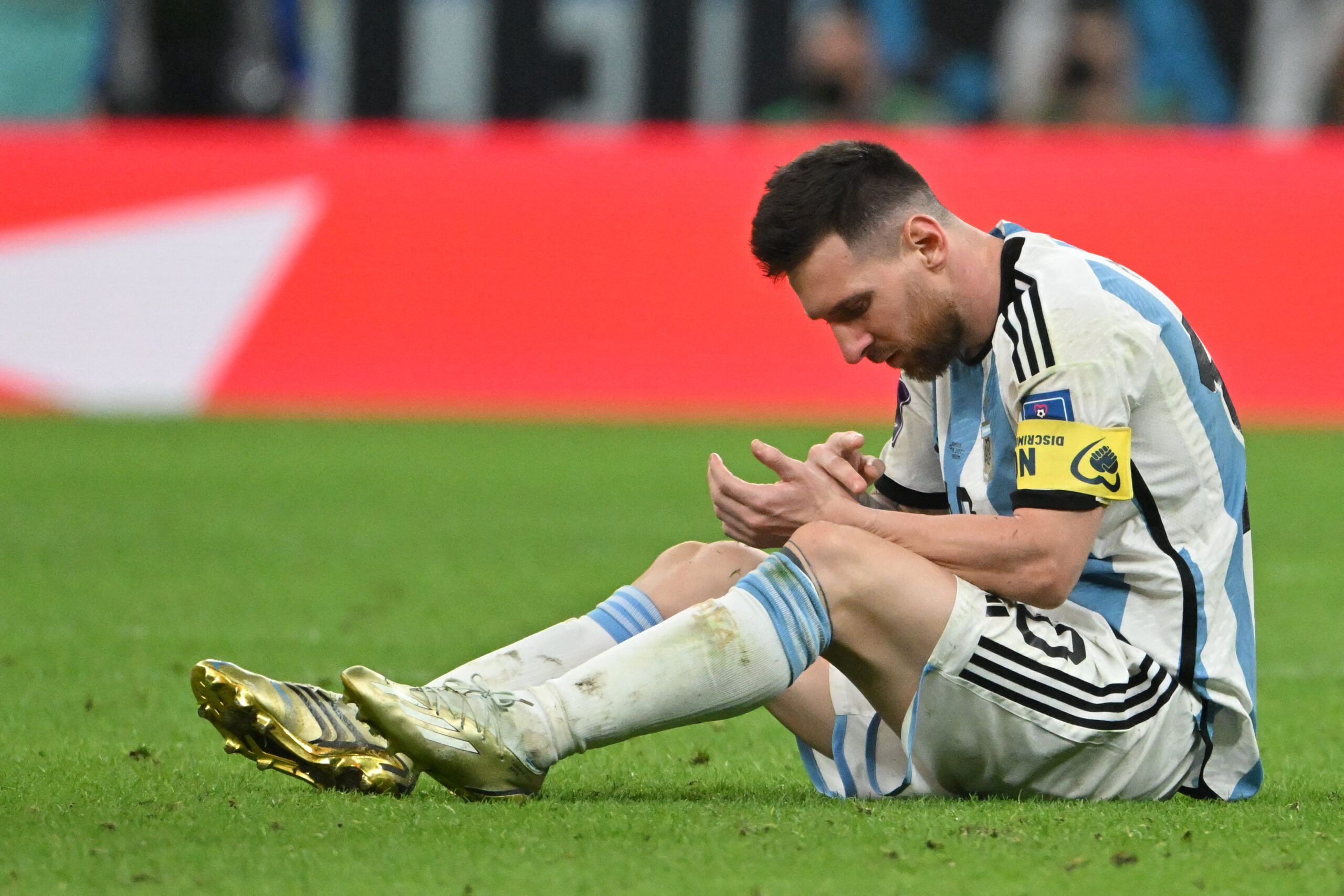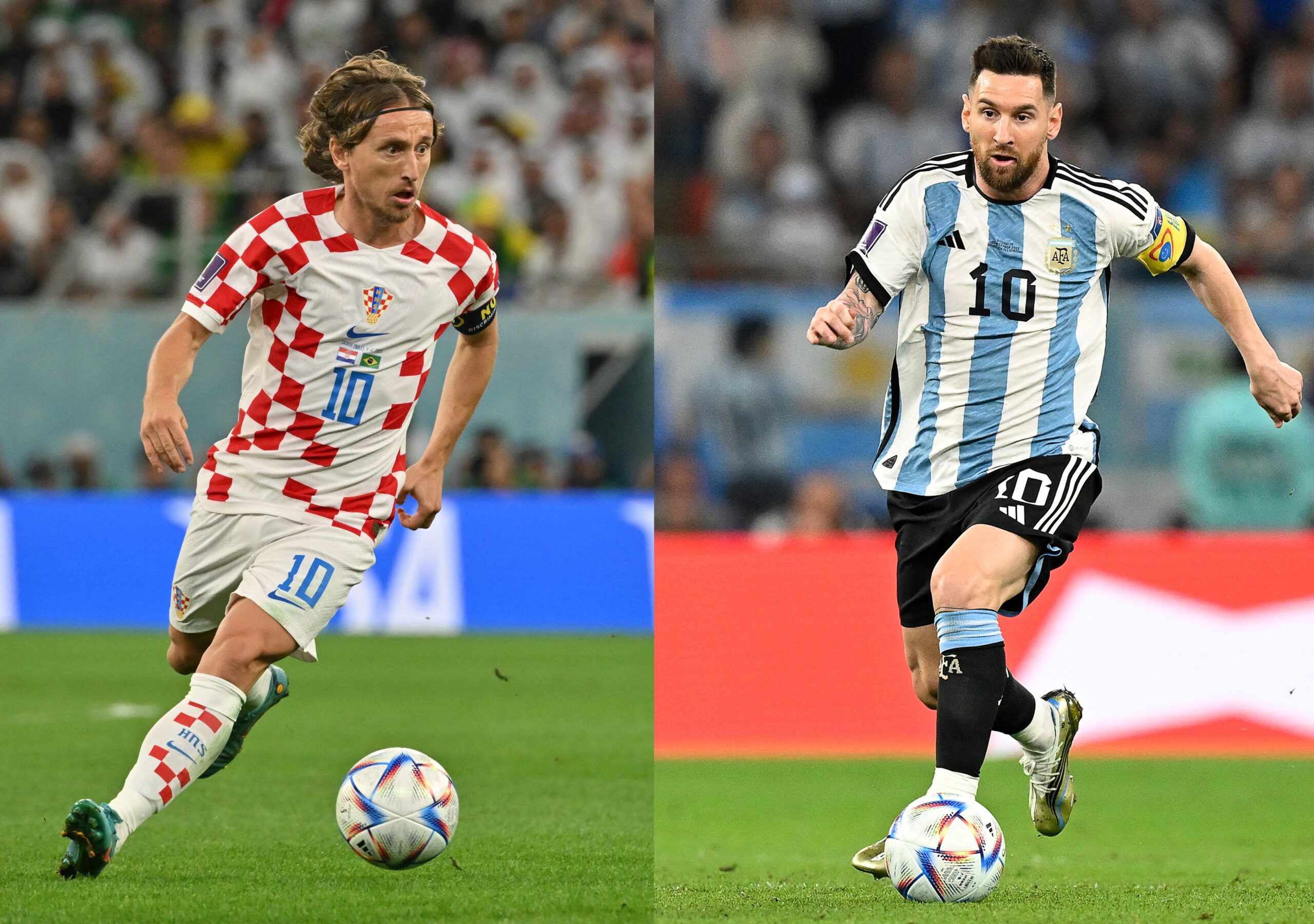After weeks of intense action and drama, the 2022 FIFA World Cup is finally reaching its business end with the semi-finals taking centre, starting with Croatia – captained by Luka Modric – up against his opposite number, Lionel Messi of Argentina.
The Blazers made it to the last-four by seeing off five-time champions Brazil via penalties in the quarter-finals, making it back-to-back World Cup semi-final appearances, having done so in Russia four years ago where they defeated England 2-1.
They were, however, denied a chance to lift the trophy for the first time in their history after losing 4-2 in the final to France.
For the Albiceleste, they let a 2-0 lead in regular time against the Netherlands slip from their grasp in their quarter-final, allowing Wout Weghorst to level late in the game with a brace.
Lionel Scaloni’s side then triumphed 4-3 in the shoot-out in a game that was very tense, with a record 18 yellows dished out with a red card.
This semi-final is crucial because it determines the fate of Croatia and Argentina and their chances of winning a trophy both countries crave.
For the Croatians, winning the World Cup will be a testament to their consistency as an ever-present footballing nation considering their geographical size (56,594 km²) and population (3.9 million people). Indeed, should Zlatko Dalic’s men be triumphant on Tuesday night and ultimately on Sunday, they would be the smallest nation to win the World Cup as previous champions such as Brazil, Germany, France, Italy all have bigger populations and landmasses.
For the Argentines, it will be their first semi-final appearance since 2014 when they progressed to the final but lost to Germany in extra time.
It was a bitter pill to swallow especially for Messi who was the Player of the Tournament. The 35-year-old has won every major trophy at the club level but has been deprived of the most prestigious trophy in the game, something that has counted against him in the debate for the Greatest of All Time (GOAT).

It would be such a great story should the diminutive maestro lift the 18-karat gold trophy in what could be his last World Cup appearance.
Definitely, it won’t come easy as Croatia are a very stern side. They might have finished second in Group F behind Morocco but they have shown nothing but strength and resilience in the knockout phase, not forgetting the 1998 World Cup runners-up thumped Argentina 3-0 in the group phase of the last edition in Russia, finishing with a maximum nine points from three games.
Croatia are masters of dragging the game beyond regular time, doing that thrice during the knockout phase four years ago, beating Denmark and Russia on penalties in the Round of 16 and quarter-finals respectively before seeing off England in extra time in the semi-finals thanks to Mario Mandzukic.
Should Tuesday’s semi go into extra-time, it could pave for another penalty shoot-out victory for the Croatians with a very reliable hand in Dominik Livakovic saving four spot-kicks against Japan and Brazil previously.
Certainly, Argentina need to be wary about allowing the game to go beyond 90 minutes. There might be questions about fatigue in Croatia after two exhilarating knockout games, but that is far from the reality.
Even though the Blazers are filled with experienced players well in their 30s such as Modric (37), Marcelo Brozovic (30), Andrej Kramaric (31), Dejan Lovren (33) and Ivan Perisic (33), they do not in any way look weak but rather seem to get better as they age.
Modric is a classic example of wine getting better as it ages. In Qatar, the Real Madrid man had been an enforcer in the middle of the park with a passing accuracy of 88% (66 per game), 91% in his own half (25.8) while it is 80% (41.4) in the opposition’s half.
From a defending standpoint, Modric is doing very well for his age and has averaged 1.6 interceptions per game, 2.4 tackles and has not commited any errors leading to a goal, penalty or shot.
Argentina are favourites to win this match for the obvious reason of having a better squad and also ranking higher as well. A team that boasts of players like Angel Di Maria, Julian Alvarez, Angel Correa and Paulo Dybala in attack, Rodrigo de Paul and Alexis Mac Allister, Enzo Fernandez and Guido Rodriguez in midfield, and a back line with the likes of Lisandro Martinez, Nicolas Otamendi, Nahuel Molina among others, the Albiceleste have the squad capable of lifting a first World Cup in 36 years and a first for Messi.

The PSG superstar despite ageing, continues to show he can carry the weight of the national team on his shoulders. He has four goals in Qatar which is only bettered by his club teammate Kylian Mbappe (5).
Messi has shown he is a real goal threat despite reduced pace and stamina with an expected goals of 3.82, shots per game (5.0) shots on target (2.4) and assists (2). Messi is a passing master at the tournament with an average of 3.2 key passes per game, passing accuracy (85%), in his own half (92%) and in the opposition’s half (80%).
As much as Argentina have been solid with Messi, they have shown signs of sloppiness as witnessed against the Netherlands where the late free kick conceded by German Pezzella was needles. Against Australia in the Round of 16, the Argentine defence made a mess of a clearance which fell to Craig Goodwin whose effort was deflected in by Enzo Fernandez and counted as an own goal.
In their Group C opener against Saudi Arabia which ended in a shock 2-1 defeat, the Argentine defence also let the Saudis have the ball so easily which led to two brilliantly-taken strikes by the Arabian Gulf giants.
Having carried his team to a first Copa America title since 1993 last year – which was the first international trophy of his carer – Messi will want to do everything in his power to land the trophy he craves so much after the disappointment in Brazil eight years ago.
He will however need to plead with his defenders not to make any errors against a determined Croatia that will use the slightest opportunity to pounce and grab a win for themselves.







